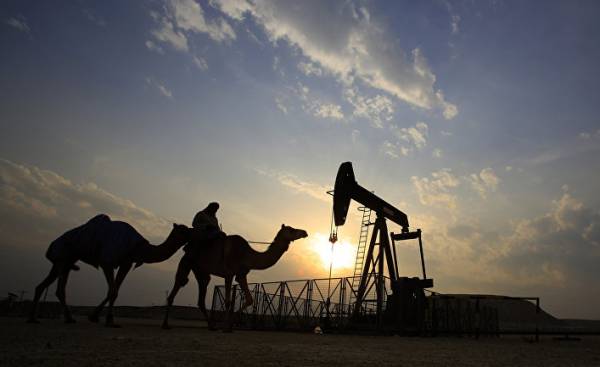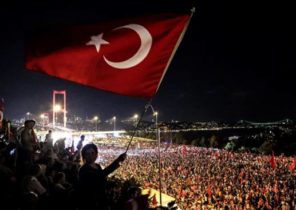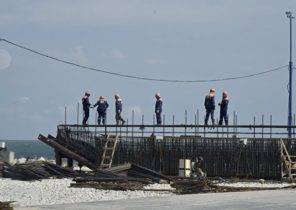
Saudi Arabia and Russia are threatening to bring the dispute about oil production to the highest governmental level due to the fact that the situation with countries reduced oil production in the framework of the agreement under the auspices of the OPEC begins to spiral out of control.
Khalid al-falih, the Saudi Arabian Minister, said Monday in St. Petersburg, after verifying the agreement on the production, which was considered the beginning of a new stage of cooperation between OPEC and major oil producers not belonging to an Association, but was unable to keep prices above 50 dollars per barrel, the possible failure of the “additional income on production”.
“We intend to insist on universal participation,” said Mr. falih during a joint press conference, adding that he planned to raise the issue to the level of “leaders, not just the energy Ministers” in the absence of reaction.
Russian energy Minister Alexander Novak, speaking with al-Valicom, confirmed his comments with the words: “We insist and demand that all countries gave their 100 percent consent.” This would mean the removal from the market of 200 thousand barrels per day.
These comments are basically a warning to those oil producers who are unable to fulfill their part of the transaction terms of production, concluded last year with the full support of Russian President Vladimir Putin and influential Saudi Prince Mohammed Bin Salman, the heir to the throne.
The purpose of the transaction was the reduction of three years of oil production, severely hit in the budget of the largest producers of raw materials: it was considered that the reduction in the production of 1.8 million barrels per day will help to normalize oil reserves and raise the price of raw materials.
If Saudi Arabia, Kuwait and Angola were among the countries that have almost fully complied with the terms of the agreement from January of this year, other States, such as Algeria, Ecuador and Iraq, as shown by the data continue to exceed your limit. Ally Saudi Arabia, according to OPEC the UAE is also in no hurry to fully reduce their production. Russia reached its goal in may.
Agreement to reduce oil production, in force since January this year, initially led to higher prices for raw materials up to 58 dollars per barrel. However, they then fell to about $ 48, which has called into question the effectiveness of this plan.
Before the meeting of the joint monitoring Committee of OPEC, designed to assess the implementation of the agreement, analysts and traders speculated that OPEC and Russia will try to push for more production cuts to accelerate the rebalancing of the oil market.
Oil producers have not yet shown enthusiasm in the matter of the formal lower limits of production, especially considering the delayed reaction of other market participants. They did not rule out the possibility of convening an extraordinary meeting of OPEC Ministers, if the market does not show signs of improvement.
Al-falih said that the Kingdom will serve as an example for other countries and reduce their exports to 6.6 million barrels per day compared to 6.9 million in may. At the moment, the oil production of Saudi Arabia, amounting to just under 10 million barrels per day, cannot be reduced: oil consumption in the summer months in the country dramatically increases, as the fuel used for air conditioning.
“In August, Saudi Arabia will record the maximum demand for oil, said al-falih. — In the end [we] will impose very strict restrictions on our exports…We are going to export 6.6 million barrels a day in August”.
The Committee also told the producers about the possibility of extending the reduction in production volumes and after 2018. The agreement was re-negotiated in nine months in June at the last meeting of OPEC Ministers.
The agreement may also attract new members. Nigeria is not participating, reported to the Committee that will reduce the volume of its production, if it will reach a constant level of 1.8 million barrels per day.







